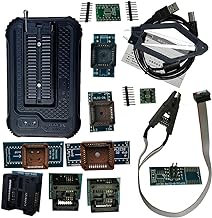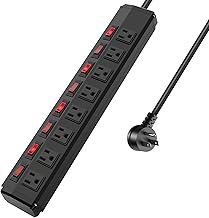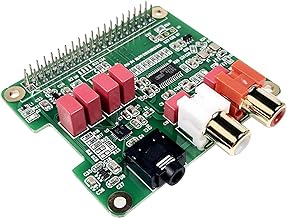5 important factors worth considering when looking for the best dac for raspberry pi
When you’re trying to make the audio on your Raspberry Pi sound better, choosing the right digital-to-analog converter (DAC) is really important. You have to consider technical specs, what devices it will work with, how good the sound is, and how much you want to spend. There are so many options out there that it can be overwhelming, which is why it’s important to pick the right one to get the best sound quality. By looking closely at these factors, you can make the audio on your Raspberry Pi sound amazing.
See our guide to the best dac for raspberry pi.
Compatibility with Raspberry Pi model
When looking at DACs for Raspberry Pi, it’s important to think about compatibility as a top priority. The model of your Raspberry Pi can affect how well the DAC works with it. Making sure the DAC is made to work specifically with your Raspberry Pi model can make your audio sound better and make you happier with your setup. There are many different Raspberry Pi models with different specs and features, so choosing a DAC that works well with your model can help you get the most out of your audio system.
Choosing a DAC that is made for your Raspberry Pi model can improve the sound quality and user experience. By picking a DAC that is compatible, you can avoid problems and easily connect the DAC to your Raspberry Pi without any issues. Buying a DAC that matches your Raspberry Pi model can make setting it up easier and let you enjoy high-quality audio without any troubles. In the end, selecting a DAC that works well with your Raspberry Pi model is important for creating a smooth and engaging audio setup that meets your needs and preferences.
Price and budget
When you’re thinking about getting a DAC for your Raspberry Pi, how much it costs is important. It can be tempting to buy the most expensive one, thinking it will give you better sound quality. But there are cheaper DACs out there that work really well too. You need to find a balance between how much it costs and how good the sound is, based on what you need it for.
Spending a lot of money on a DAC might seem like a good idea, but you can still get great sound quality with a cheaper one for your Raspberry Pi. If you set a budget and look at different models, you can find a DAC that does what you need without spending too much. The best DAC for your Raspberry Pi is one that fits your budget and gives you the sound quality and features you want.
Sound quality
When you’re looking to improve the sound quality of your Raspberry Pi, a digital-to-analog converter (DAC) is key. A high-quality DAC can take your audio to the next level, giving you clearer highs, richer mids, and deeper lows. It can help you notice subtle details in music, movies, and other audio that you might have missed before. It’s not just about hearing – it’s about feeling and truly connecting with the sound.
A good DAC can uncover the hidden nuances in your music collection, bringing out textures and details that cheaper audio devices might miss. By choosing a DAC that focuses on sound quality, you can enhance your Raspberry Pi experience and immerse yourself in more lifelike audio. Before making a decision, do some research and compare different DACs, paying attention to reviews and specifications that talk about sound performance. A high-quality DAC can open up a world of amazing sound that will captivate you and inspire you to explore new auditory possibilities.
Connections and ports
When looking at DACs for Raspberry Pi, it’s important to pay attention to the different types of connections they have. These connections are how the audio signals travel, affecting how the sound quality and user experience. Choosing a DAC with many connection options allows you to easily connect different devices, making your audio system more versatile. With ports like USB, optical, and coaxial, you have flexibility in how you connect to your music.
The connections and ports on a DAC can make it easier or harder to use. Having a variety of ports makes setting up simpler and reduces the need for extra adapters that could lower the audio quality. Multiple input options mean you can easily connect your DAC to different Raspberry Pi models. By considering the pros and cons of each type of connection, you can make a smart choice for your setup now and in the future.
In the end, getting a DAC with lots of ports ensures a smooth and enjoyable audio experience where every sound is clear and precise, enhancing your listening experience.
Power source requirements
When choosing a power source for a DAC connected to a Raspberry Pi, it is important to focus on stability and cleanliness. The type of power supply used can greatly affect the sound quality and performance of the DAC. A good power supply can reduce electrical interference and noise, resulting in a clearer and better sound. By getting a power supply that meets the needs of both the Raspberry Pi and the DAC, users can ensure top performance and audio quality while enjoying their music.
Additionally, the right power source can also protect both the Raspberry Pi and the DAC from potential harm and keep them working well for longer. It is crucial to have consistent and regulated power to preserve the audio quality and make the most of the digital-to-analog converter. Although it might be easy to overlook the importance of the power source, users should understand its key role in achieving great audio performance. By recognizing the value of a good power supply, music lovers can enhance their listening experience and get the best out of their Raspberry Pi DAC setup.
Conclusion
Embracing the digital audio world, having a DAC for Raspberry Pi is important for both music lovers and tech fans. This combination improves sound quality by mixing new ideas with easy access to technology. Exploring DAC for Raspberry Pi leads us on a journey to enhance our listening experience and discover the endless potential of digital sound.




